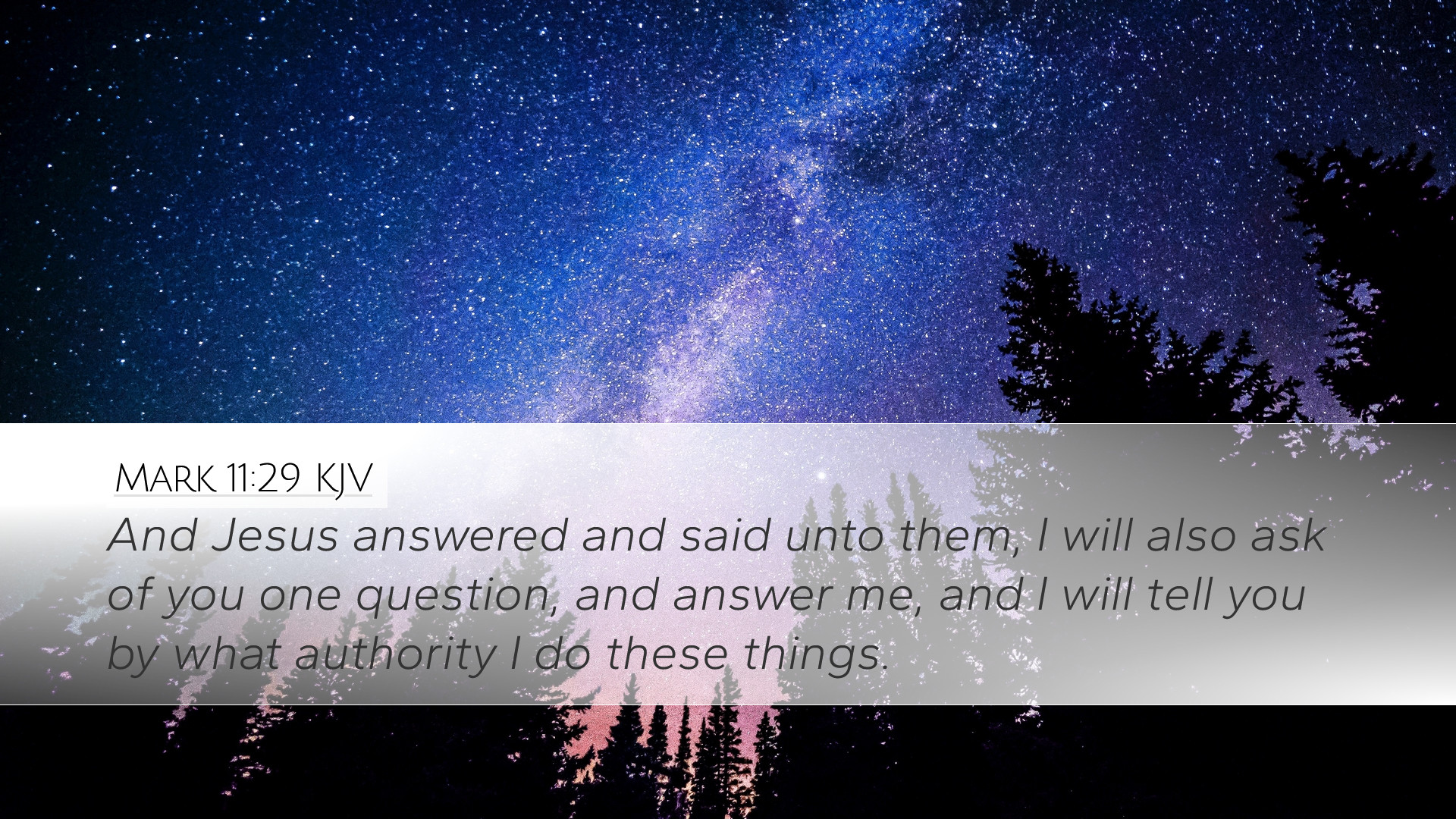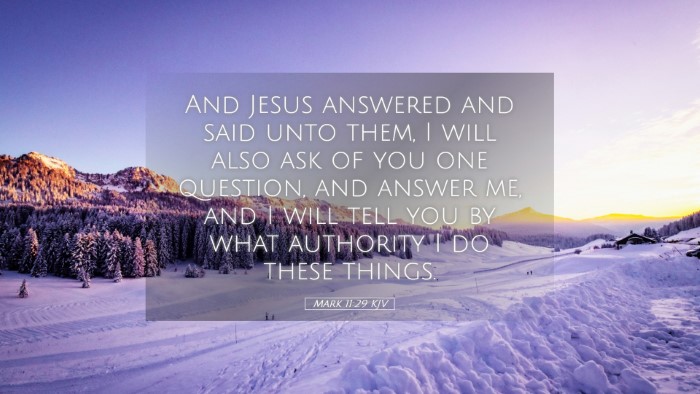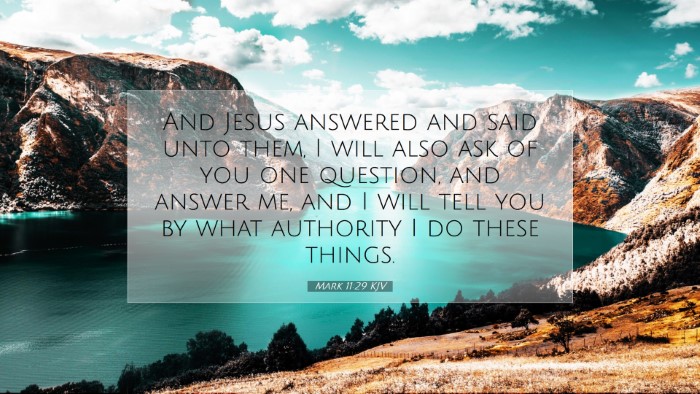Commentary on Mark 11:29
Mark 11:29 states: "And Jesus answered and said unto them, I will also ask of you one question, and answer me, and I will tell you by what authority I do these things."
Contextual Analysis
This passage occurs during the final week of Jesus's earthly ministry, shortly after His triumphant entry into Jerusalem and the cleansing of the Temple. The religious leaders confront Him, questioning His authority to teach and perform miracles. The response of Jesus in asking them a question serves both as a challenge to their authority and as a means of revealing their insincerity.
The Authority of Jesus
Matthew Henry points out that the authority of Jesus is a central theme in this passage. His question redirects the focus from His authority to that of John the Baptist. This rhetorical strategy serves to expose the religious leaders’ unwillingness to acknowledge the truth. They debated among themselves, illustrating their internal conflict and lack of conviction.
Public Response to Authority
Albert Barnes notes that the religious authorities were under pressure to maintain their influence and status. Jesus's question forced them into a corner, making them weigh the potential public reaction against their own positions. Their dilemma highlights the conflict between divine authority and human authority.
Insights from Adam Clarke
Adam Clarke emphasizes the significance of asking questions in the realm of theology and spirituality. He interprets Jesus’s question as a method of teaching, indicating that understanding authority requires discernment and reflection. By engaging in dialogue, Jesus illustrates the importance of inquiry in spiritual matters.
The Rhetorical Method of Jesus
Using questions to engage with others was a common teaching method in the Jewish tradition. Jesus's approach in this passage showcases His wisdom and skillful navigation of conflict. By not responding directly, He maintains control of the conversation and directs the inquiry back to the religious leaders.
Implications for Leadership
This interaction serves as a lesson for leaders, especially in spiritual contexts. As pastors and theologians reflect on this passage, they must consider how they address challenges to their authority and how they foster discussions that lead to deeper understanding.
The Role of John's Authority
Henry points out that when Jesus asks about John the Baptist, He places the religious leaders in a position where they must confront the undeniable impact of John's ministry. The inability of the religious leaders to answer His question reflects their failure to grapple with spiritual truths and recognizes a prophet when they see one.
Analysis of the Rejected Authority
The challenge presented by Jesus not only concerns His authority but also reveals how those in power often reject truth for the sake of their own agendas. Clarke emphasizes that the blind spots of the religious authorities represent a cautionary tale for all leaders.
Reflective Questions for Further Study
- What does it mean to recognize and submit to spiritual authority?
- How do we respond to challenges against our understanding of the truth?
- In what ways can questioning serve as a tool for deeper learning?
Conclusion
Mark 11:29 serves as a profound exploration of the nature of authority, both divine and human. Jesus's engagement with the authorities not only affirms His own authority but also challenges the status quo. For pastors, students, and theologians, this passage is an invitation to analyze how authority is understood and manifested within the community of faith. It encourages reflection on the importance of asking questions and remaining open to truth amidst challenges.


